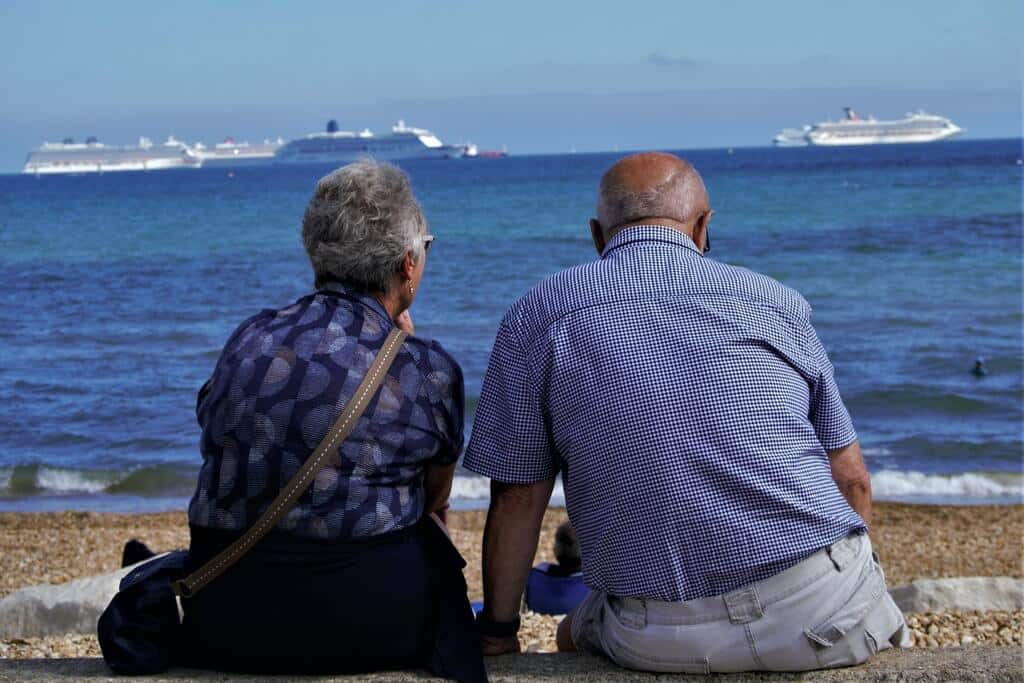No-one wants to be injured in a cruise ship accident. After looking forward to your well deserved cruise, it can be bitterly disappointing not being able to do the activities you planned because you are hurt (not to mention it can be rather embarrassing having a spectacular fall in front of crew and passengers!)
Suffering an injury on a cruise ship can also be a stressful experience. Should I go to the medical centre? How much will it cost? Should I report what happened or just brush it off? Why are the ship’s security officers questioning me? These are some of the questions that might run through your mind.
Regardless of who was at fault for your accident (don’t worry, we can all be clumsy from time to time!) I have therefore put together this ultimate guide. It is based on my years of experience of representing injured cruise passengers with vast tips to help you if you suffer the misfortune of a cruise ship accident when you next sail.
After a cruise ship accident always seek medical treatment, even for minor injuries
If you are hurt in a cruise ship accident, I recommend that you seek medical treatment no matter how minor your injuries might seem at the time. This is important not only to look after your wellbeing, but also to ensure that there is a record of your accident and your injuries.
Immediately after a cruise ship accident, you might be embarrassed and brush off the accident and your injuries as minor. You might also be in a hurry to get on shore for an excursion and put on a brave face and carry on. You might therefore decide that your accident won’t disrupt your plans, or simply rest in your cabin rather than go to the ship’s medical centre. I would advise against this.
There is a risk that injuries that initially seem minor could persist or grow worse. Many of my previous clients have told me that they did not seek medical treatment straight after an accident because they thought that the injury wasn’t that bad, or that they just needed to rest overnight and the injury would feel better in the morning. However, often this is not the case.
I have represented numerous cruise passengers who have slipped or tripped on cruise ships and injured their ankles and knees. They commonly tell me that they thought the injury was just a sprain, and therefore try to carry on in the hope that it gets better, but it doesn’t. For some when they eventually sought treatment because the pain did not subside, it transpired that they had actually suffered a fracture or torn a tendon.
When cruise passengers do not seek treatment immediately after a cruise ship accident, it can put their recovery at risk. For example if you injure a limb but continue to use it, this could potentially exacerbate the injury and delay your recovery.
When passengers do not seek prompt medical treatment, cruise lines frequently blame the severity of an injury on the passenger if they later bring a personal injury claim. I am often faced with the allegation that an injury was minor, and my client’s symptoms have only persisted because they did not seek medical treatment straight away. For example, cruise lines often allege that a client should not have walked on an injured ankle, or weight-beared on a injured knee, and that this is the cause of the severity of their symptoms and not the cruise ship accident itself.
I therefore recommend that you seek immediate medical treatment in every case.
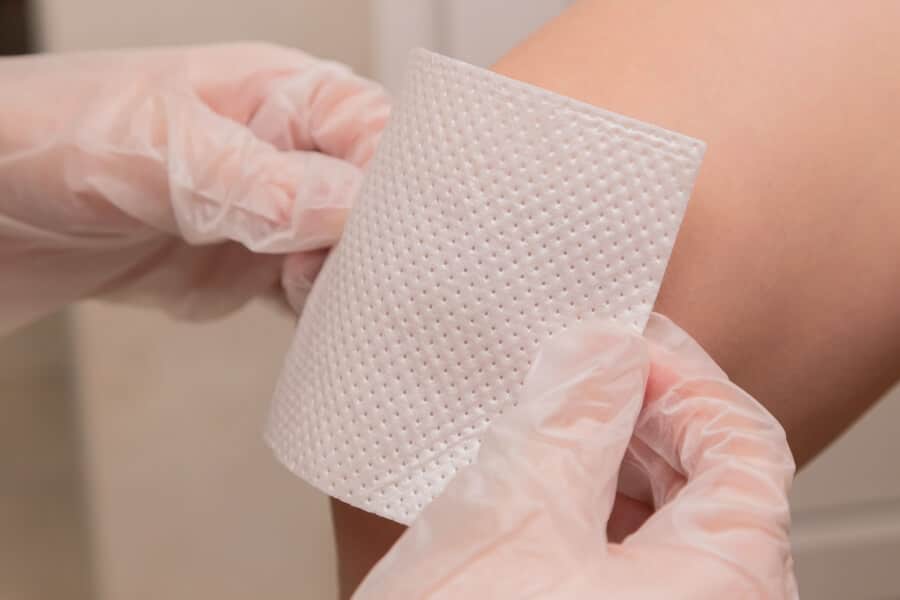
Carefully describe how the cruise ship accident happened
When you seek medical treatment from the ship’s medical centre, the medical crew will ask you how your accident happened. They might ask you this verbally, but more often they will ask you to write down the circumstances of your accident in a passenger accident statement or medical centre intake form.
It is important that you give careful consideration as to how you describe your accident. This will probably be the first time that you recount how the accident happened after the injury, so considerable weight will be given to it as evidence down the track if you decide to bring a compensation claim.
Although bringing a compensation claim will probably be the last thing on your mind at this stage, you don’t know how serious your injury is and how it will effect you in the future. It is therefore best that you keep your options open and describe the accident accurately.
I therefore recommend that you are as precise as possible. For example, if you slipped on a liquid, consider these questions:
Your recollections of these details in your accident report will form helpful evidence in a later cruise ship injury compensation claim.
I also recommend that you are factual and not emotional when you write your accident report. Using the example of a slip on liquid, I would write something like
“There was a crew member wiping tables nearby but she did not warn me”
rather than
“The cleaner was negligent because she wasn’t doing her job properly.”
I also advise that you only report what you are certain about. If you can’t remember a detail, don’t make it up. Also do not reconstruct what you think ‘must have’ happened. It will not look good for your credibility if you later bring a cruise ship accident compensation claim and it turns out to be wrong. If you can’t remember exactly just say that you are giving your best recollection.
Finally, do not be influenced to say that the accident was your fault or no-one’s fault. There are sometimes tick boxes on accident reports for you to say who was at fault. If you believe it was the cruise line’s fault, go ahead and tick that box. Otherwise, just say ‘unsure’ – its not your job to attribute blame, just to specify the facts.
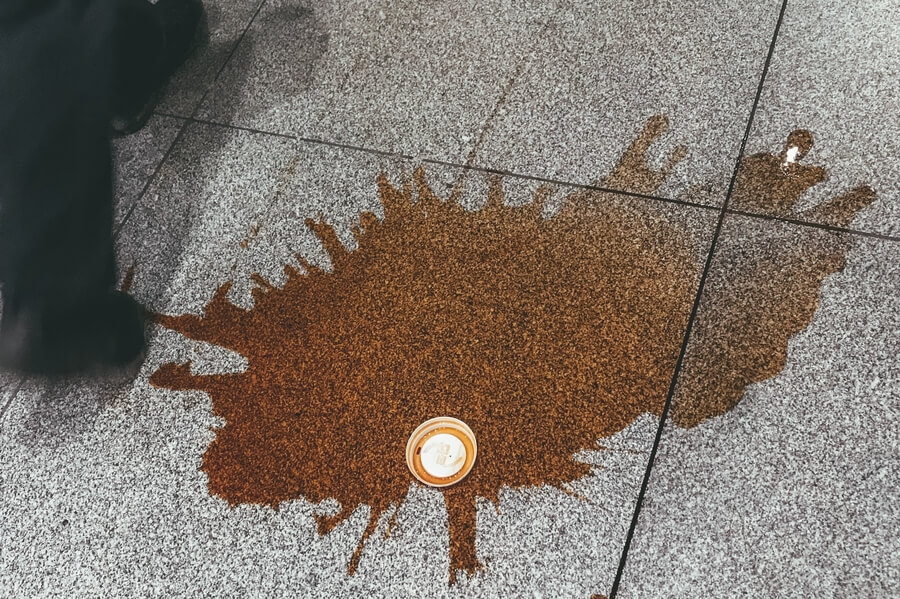
Be prepared to pay for medical treatment
Although cruise ships have medical centres, medical treatment is not free. Even if you believe that the cruise line was at fault, you should be prepared to pay for your medical treatment.
When you attend the ship’s medical centre, you might have to sign a form agreeing for the cost of your medical treatment to be put on your cruise card account. Otherwise you might have to pay for it with your cruise card there and then.
It is important to remember that Medicare will not cover your onboard medical expenses, even if your cruise is solely within Australian waters. This can come as a nasty surprise to many cruise passengers. Medical treatment is also more expensive than if you received it on land.
Even if you have travel insurance, the cruise line is most likely going to need you to pay for the medical treatment yourself for you to claim back from your travel insurer. In all my years of experience of bringing cruise ship compensation claims for injured cruise passengers, I cannot recall an instance where a cruise line contacted a travel insurer and agreed to bill the travel insurer rather than the passenger.
What to expect from a ship's medical centre
Cruise ship medical centres are more comprehensive than you might think, but naturally the services offered are not as comprehensive as on land.
The doctors who work on cruise ships are general physicians. They are therefore a good first point of call for any injury. They can prescribe medication and apply splints, casts and bandages. As they are not specialists, they can refer you for specialist treatment on land if your injury needs a specialist opinion.
Many cruise ships have x-ray machines on board. Medical staff can therefore provide you with an x-ray. The digital image is then sent back to the cruise line’s medical team on land for interpretation. However if a more detailed scan is needed, such as a CT scan or MRI scan, the ship’s doctor will refer you to a hospital on land at your next port for this to be performed.
Ship’s medical centres are staffed by nurses as well as doctors. You might therefore initially be triaged by a nurse, or followed up by a nurse for example for dressings to be changed.
Ship’s medical centres are not like an emergency department. They are not open 24 hours a day. They have set hours which will be published in the ship’s information. They might also be closed during port days, even during their normal operating hours.
No matter what the time of day, if you suffer an emergency you can telephone for emergency medical treatment. Medical staff remain on call even when the ship’s medical centre is closed. The telephone number will be published in the ship’s information.
Ask for an accident investigation
On many cruise lines, seeking medical treatment after an accident will trigger a notification to guest services. However, this is not always the case. I therefore recommend that you report your accident to guest services to ensure that they have an official record of the accident.
Once guest services are notified, they will usually involve the ship’s security personnel to investigate your accident. This generally involves taking a witness statement from you, and accompanying you to the scene of the accident so that you can show them exactly what happened.
As I explained above, it is important that you give careful consideration as to how you describe your accident. The accident will be fresh in your memory at this stage, so your witness statement or accident report form will be important evidence of how the accident happened if you later decide to bring a cruise accident compensation claim.
Again, I recommend that you are as precise as possible when recounting events. If you are not sure about something, say that you are giving your best recollection. Do not make something up if you are not sure that it happened, do not reconstruct what ‘must have happened’, and do not embellish the facts. This will only come back to haunt you later.
One thing I have come across time and time again when acting for injured cruise passengers, is that ship security officers seem to have a fascination with shoes! Numerous clients have told me that photographs were taken of their shoes, even when it is questionable whether the type of shoe would have had anything to do with how the accident happened. Therefore if the ship’s security officers they take photos of your shoes, don’t be surprised.
During the investigation process, ask the ship’s security officers for copies of documents that you give them like your witness statement / accident report. They won’t give you copies of their internal investigation reports (you can always subpoena these later) but you are entitled to copies of documents that you have prepared.
If the ship does not conduct an investigation into your accident, ask them to do this. If they take health and safety of passengers onboard safely, they should conduct an investigation.
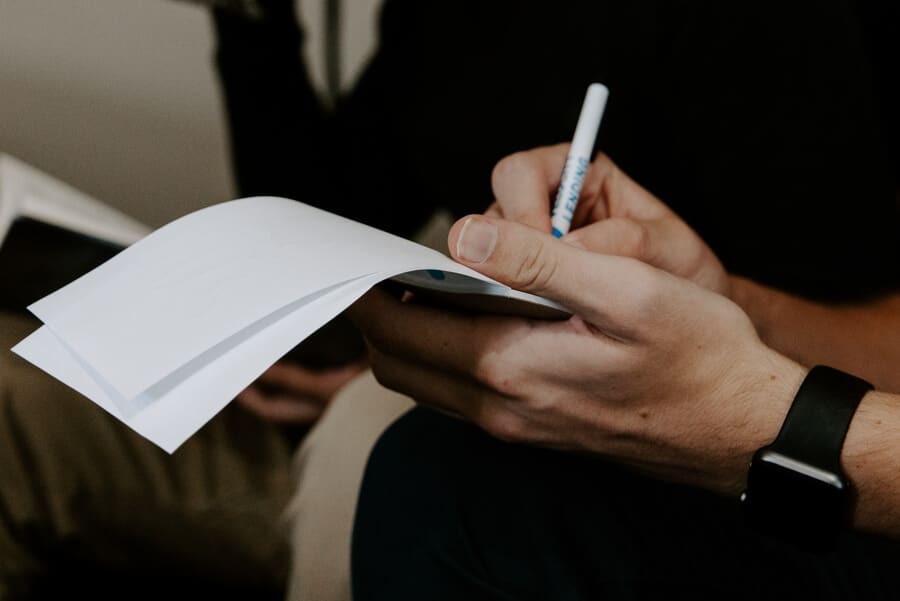
A word about travel insurance
I mentioned above that your account of how your accident happened to the ship’s medical centre or security personnel will be given considerable weight. This is because it will be one of the first times you recount what happened, and it will still be fresh in your memory.
The same applies if you make a claim on your travel insurance policy. Your travel insurer file will also form part of the evidence in a later cruise ship accident compensation claim. It is therefore important that you are as careful about how you describe how the accident happened when you report it to your travel insurer as you are to the cruise line.
Gather and preserve evidence
I cannot stress the importance of gathering and preserving evidence enough after you have had a cruise ship accident.
Unlike if you had an accident in a shopping centre or hotel in Australia, cruise ships are difficult to access to view the scene of an accident. Witnesses are also hard to trace. Passengers travel from across the world to go on cruises, and by living at sea for most of the year, crew members are difficult to trace.
Here are my top tips for gathering and preserving evidence after a cruise ship accident:
Enjoy the rest of your cruise
I know how exciting it is to plan a special holiday, so if you are injured in a cruise ship accident it is only natural to feel bitterly disappointed.
Depending on your injury, try to enjoy the remainder of your cruise as best as you can.
If you can’t use the ship’s gym, you might be able to take the weight off your injury by walking in the pool (subject to medical advice of course). If you can’t sit in the confined space of the ship’s theatre, you might be able to enjoy live music in the piano bar and move around if you become uncomfortable.
Think outside the box and if your health allows, try things you might not normally do. It has got to be better than being stuck inside your cabin!
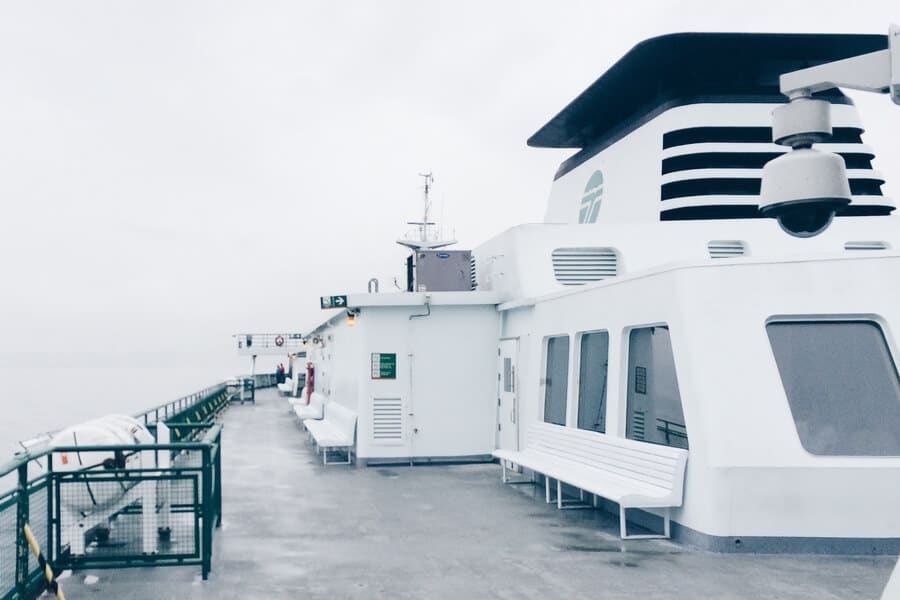
The cruise line is always watching
If you decide to bring a cruise ship accident compensation claim, don’t forget that the cruise line can check up on what you did after an accident.
Between your cruise card being used as payment at retail outlets, bars and restaurants, and ID checks of passengers who disembark at ports of call, it is not difficult for a cruise line to trace your movements after an accident.
If you are truthful about your restrictions after an accident, this works in your favour. If you are honestly in so much pain that you spend all day in your cabin, but make the effort to have dinner in a restaurant, then your cruise card will support this. However if you later claim that you were in too much pain to enjoy the rest of your cruise so you stayed in your cabin, but your cruise account shows that you were spending your days drinking beers at the pool bar, that will come back to bite you later.
I have seen it so many times – cruise lines will check your onboard activity after an accident if you later bring a cruise ship accident compensation claim.
The moral of the story is therefore to enjoy the rest of your cruise as best as you can, and if you later bring a claim be honest about your restrictions and how the rest of your cruise was affected.
Seek expert legal advice
After a cruise ship accident, it is a good idea to speak to an expert cruise lawyer who can advise you on what your rights are.
Some cruise lines require you to make a written complaint within a few weeks of returning home if you wish to pursue a compensation claim.
Furthermore the deadline to sue a cruise line in a cruise ship accident compensation claim can be as short as 12 months in some circumstances, like claims subject to US law.
I therefore recommend that you speak to a cruise lawyer who is experienced in cruise ship compensation claims as soon as possible after your accident.
Need more help? Here's how to get started...
My firm Victory Travel & Cruise Lawyers are experts in cruise ship accident compensation claims. I started working in this area in 2010, and have helped countless injured passengers along the way.
If you would like some advice about your cruise ship accident, I would be more than happy to have a confidential chat with you. You can book a free no-obligation appointment directly in my calendar at a time that suits you by clicking here. You can do this once you are at home, or even while you are still onboard.
If you are undecided about bringing a cruise ship accident compensation claim, I recommend that you send a written complaint to the cruise line to preserve your rights.
You can download my free guide to successful holiday complaints here.
If you are not sure how to word the complaint letter, or need a boost in confidence when you are dealing with the cruise line, you can buy a template cruise injury notification letter here.
For general advice about going on a cruise, visit the Federal government Smarttraveller’s dedicated page here.
This article does not comprise legal advice and neither Victory Travel & Cruise Lawyers nor the author accepts any responsibility for it. For advice on your specific circumstances, book an appointment with a lawyer.
